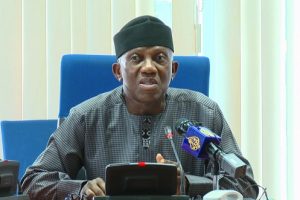
BY SOLOMON DIBABA
Black people across the globe celebrate one historical asset that occurred 125 years ago in a small town in northern Ethiopia. The Battle of Adwa was a rocket booster or a launching pad for the inception of Pan Africanism. This historic battle and the subsequent victory registered by irregular peasant army of Ethiopia resonated across the world as the first victory against a colonial power ever to be won by an African country.
History proves that the victory at the Battle of Adwa was not a victory only for Ethiopia. Although the Battle was fought in Ethiopia, the entire global community of peoples shares this outstanding victory against a European colonial power that was thought to be invincible.
The western newspapers lost no time to report of this historic victory.
On March 4, 1896, the New York Times had this headline about the Battle of Adwa:
“ITALY’S TERRIBLE DEFEAT”
“The present campaign against the Abyssinians threatens to become one of the most disastrous in which the Italians arms have ever taken part, and what the final outcome will be it would be hard to predict. It was rumored today that the latest defeat of the Italians by King Menelik had compelled Ministry to resign, owing to the popular disapproval of the Government’s policy, but tonight this report is denied.
Details received here today of the defeat on Sunday of the Italian Army show that the Italian losses were very heavy, they being placed by some at 3,000 killed.”
Another weekly newspaper, Lloyd’s Weekly News Paper, London 1896, March 8 came out in the same vein.
“Disaster has overtaken the Italian forces in Abyssinia. A desperate battle was fought with the Shoans at Adwa on February 29 and resulted in General Baratieri being almost annihilated.”
The London Times almost foresaw the future impact of the war:
“The defeat of the Italians will go through the annals of history. This history will invigorate the fighting spirit of Africa which was hitherto considered as savage.”
The paper seemed to forecast the impact of the defeat of the Italians on the future emergence of Pan-Africanism both in the US, the Caribbean and the African continent. The founders of Pan Africanism were definitely inspired by the victory at the Battle of Adwa which has played a role in unifying Africans in the region and at the Diaspora. The spirit of the movement spread across the world calling for unity among all black people in their quest for self-assertion, freedom from colonial rule and oppression.
Pan-Africanist ideas first began to circulate in the mid-19th century in the United States, led by Africans from the Western Hemisphere. The most important early Pan-Africanists were Martin Delany and Alexander Crummel, both African Americans, and Edward Blyden, a West Indian.
Those early voices for Pan-Africanism emphasized the commonalities between Africans and Black people in the United States. Delany, who believed that Black people could not prosper alongside whites, advocated the idea that African Americans should separate from the United States and establish their own nation. Crummel and Blyden, both contemporaries of Delany, thought that Africa was the best place for that new nation. Motivated by Christian missionary zeal, the two believed that Africans in the New World should return to their homelands and convert and civilize the inhabitants there.
However, the true father of modern Pan- Africanism was the influential thinker W.E.B. Du Bois. Throughout his long career, Du Bois was a consistent advocate for the study of African history and culture. In the early 20th century, he was most prominent among the few scholars who studied Africa. His statement, made at the turn of the 20th century, that “the problem of the twentieth century is the problem of the color line” was made with Pan-Africanist sentiments in mind.
From the 1920s through the 1940s, George Padmore, Léopold Senghor of Senegal and, Jomo Kenyatta of Kenya, was also an important figure in Pan-Africanist thought. The first formal Pan-African Congress (the first to bear that name) took place in 1919 in Paris and was called by Du Bois.
That meeting was followed by a second Pan- African Congress two years later, which convened in three sessions in London, Brussels, and Paris. The most-important result of the second Pan-African Congress was the issuance of a declaration that criticized European colonial domination in Africa and lamented the unequal state of relations between white and Black races, calling for a fairer distribution of the world’s resources.
By late 40s and early 50s the most-important figure of this period was Kwame Nkrumah of Ghana, who believed that European colonial rule of Africa could be extinguished if Africans could unite politically and economically. Nkrumah went on to lead the movement for independence in Ghana, which came to fruition in 1957. Many African Americans cheered those developments in Africa and Pan Africanism developed in its Afrocentric bases with the era of African decolonization in the 1960 followed by the establishment of the OAU in 1963 further promoting the cardinal values of Pan Africanism.
Among the more-important Pan-Africanist thinkers of the first decades of the 20th century was Jamaican-born Black Nationalist Marcus Garvey. In the years after World War I, Garvey championed the cause of African independence, emphasizing the positive attributes of Black people’s collective past. His organization, the Universal Negro Improvement Association (UNIA), boasted millions of members, envisioning and then making plans for a return “back to Africa.” Garvey’s Black Star Line, a shipping company established in part to transport Blacks back to Africa as well as to facilitate global Black commerce, was ultimately unsuccessful.
Today, Pan Africanism has developed with much wider spectrum to include not only political but also economic, cultural, educational, scientific and technological cooperation among African countries.
Sid Lamelle identified seven major points as the strategy by which to fully comprehend the idea and praxis of Pan-Africanism. His idea included ‘Africa as Homeland’, ‘Solidarity’, ‘Historical Restoration’, ‘Cultural Heritage’, ‘Africa for Africans’, and ‘Unity’. Consequently, Lamelles’s seven salient points of Pan-Africanism included, Africans and persons of African origin recognize Africa as their home land , solidarity among men and women of African descent, Belief in a distinct ‘African personality; Restoration of African’s History; Pride in African cultural heritage; Africa for Africans in material and spiritual pursuit; and Hope for a United Future.
The AU has elevated Pan Africanism to a higher and long term agenda, code named Agenda 2063 which is a shared framework for inclusive growth and sustainable development for Africa to be realized in the next fifty years. It is a continuation of the pan-African drive over centuries, for unity, self-determination, freedom, progress and collective prosperity pursued under Pan-Africanism and African Renaissance. It builds on, and seeks to accelerate the implementation of past and existing continental initiatives for growth and sustainable development. It was agreed upon by the African leaders in 2013 through the 50th Anniversary Solemn Declaration during the commemoration of the Fiftieth Anniversary of the Organization of African Unity (OAU).
The African Continental Free Trade Area (AfCFTA) created and approved by the AU and to be implemented effective January1, 2021, presents a major opportunity for African countries to bring 30 million people out of extreme poverty and to raise the incomes of 68 million others who live on less than $5.50 per day. The free trade area is conceptually based on AU Agenda 2063 and the cardinal principles of economic Pan Africanism. With the implementation of AfCFTA, trade facilitation measures that cut red tape and simplify customs procedures would drive $292 billion of the $450 billion in potential income gains.
Implementing AfCFTA would help usher in the kinds of deep reforms necessary to enhance long-term growth in African countries.
One of the most important achievements of the loft goals of Pan Africansim is indicated by the establishment of Pan African universities across various regions of Africa. The Pan African University addresses five crucial thematic areas, through a network of five flagship institutes, namely Basic Sciences, Technology and Innovation; Life and Earth Sciences (including Health and Agriculture), Governance, Humanities and Social Sciences; Water and Energy Sciences (including Climate Change); and Space Sciences. The thematic areas are assigned to institutes hosted by existing Universities of excellence across Africa’s five geographic regions.
The Adwa Pan African University in Tigray Regional State was another major response from Ethiopia to further develop Pan Africanism in the areas of culture, education and research. The university will add a higher value to making further researches on the Battle of Adwa and other fields of study pertinent to Africa and Ethiopia.
It is to be noted that Ethiopia has already started to do her part in promoting economic integration in Africa in the spirit of Pan Africanism and Agenda 2063 by serving as a hydropower hub for Africa through the construction and completion of GERD, through aviation services networking Africa through the Ethiopian Airlines Group and construction of perennial roads that are connecting the country with its neighbors.
Furthermore, Ethiopia conspicuously stands out with its peace keeping missions in Somalia, Sudan while the country also helped to ascertain peace keeping in Korea, Congo, Rwanda, and Burundi.
Ethiopia will therefore continue to cherish the lofty ideals of the victory of Adwa by remaining active partner with the AU in promoting the multi- faceted objectives of Pan Africanism.
The Ethiopian Herald February 17/2021



